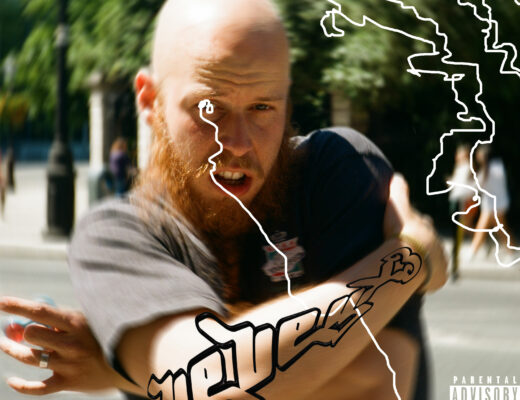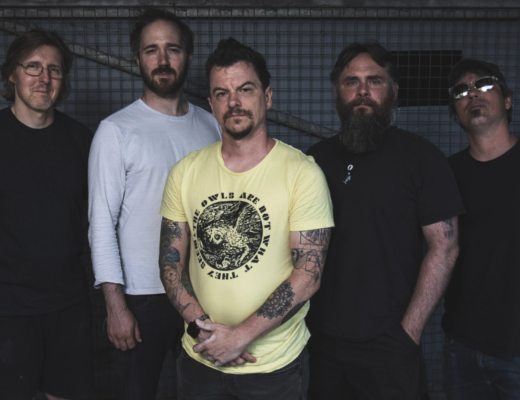No Named isn’t just your typical Anglo-rock band; they are a group that has harnessed the power of music to transform pain and suffering into joy and inner peace. This interview delves into their unique journey, from early struggles to professional success, and their commitment to authenticity in the music industry.
Can you tell us more about the origin of your band name, “No Named,” and how it represents your musical journey and identity?
The name originated for two reasons.
At first because in the beginning the professional commitment and stable permanence of the rest of the band members were not achieved, except for Nice Light, so the musicians changed constantly and a permanent identity was not achieved for them, so not having a name was something simply real, since that was what happened.
The second reason is that in his musical conception, the founder was not interested in being recognized or remembered for something tangible or visual, much less for any name in particular, but for something that belonged to the world of feelings and hopefully those deep ones that experience people. So, having a name was something insignificant in relation to the above. Furthermore, pain and suffering had taught him that simplicity and prudence were the correct path for almost everything, so having no name was the best.
Your music is deeply rooted in authenticity and emotions. Could you elaborate on your creative process and how it contributes to the unique sound and atmosphere of your songs?
The songs are based on relevant and true emotions that are felt in the soul at some point and that are translated into melodies and rhythmic sequences on the fly, in those same moments. And all of this creates an atmosphere and a feeling that also adds up. Thus, the Verse or Chorus of a song is born, associated with something real that was experienced or felt, which also gives rise to the concept and/or message of the song.
Several songs have even started in the middle of a dream, where intense things are being felt, with all the atmosphere and deep sensations of a dream, which is accompanied by a melody and rhythmic sequence. So when you wake up in the middle of the night, that melody and that rhythmic sequence remains playing, with something of that atmosphere and then, so that it doesn’t fade away… He records himself on a small recorder several times, re-feeling what he felt in the dream and thus remains his indelible record of what he felt in it. The sensation remains. And when it remains… the subsequent challenge is to ensure that that feeling and that atmosphere are captured in the musical arrangements, through the instruments and the way in which they are played, or rather, in the way in which they feel inside of the soul when touching them.
“Feelings” and “Looking From The Rainbow Game” are two of your notable albums. Could you share the inspiration behind these albums and how they reflect your personal experiences and growth as a band?
In the case of “Feelings”, the late motive was to make the memoirs of a civil engineer, as part of a person’s journey. But they did not want to make a book or a conventional text about it, as many engineers or professionals from other sciences do; since in the other part of that person, there was an artist, the one who was born alongside the engineer and who wanted to transmit the emotions experienced through his journey through life, through feelings.
Thus, “Feelings” relates real events and experiences of the engineer and the artist at the same time, through each of its songs, with musical arrangements, atmospheres and rhythmic sequences that reflect the emotions experienced in each of those moments.
In the case of “Looking From The Rainbow Game”, the late motive was to leave a memory and/or capture relevant events and/or situations of people in their lives, making it clear that life is full of surprises, unpredictable moments and relevant changes. that even appear and disappear on their own, like the colours of the rainbow.
The experience was also fascinating since there were very special moments when making that album, especially in songs like “Any Song to Dance”, which talks about accepting with dignity and joy whatever has to come, whatever it may be…. Like “Touch the Stars With Your Hands” which talks about being grateful and blessing the sublime moments of life… and “How it Feels to Forgive” which talks about forgiveness. And so each song on that album leaves a testimony of each relevant moment in people’s lives.
Your journey led you to India, where you received the name “Nice Light” from a spiritual guide. How did this experience influence your music and your perspective on life and art?
It was something magical and transformative. Initially, I was looking for answers to my internal pain and questions about life, since I felt that despite having done things well, in the end, things had gone wrong, which had caused me great suffering.
However, through that magical experience, I discovered that my path was not to wonder about what had happened, nor to look forward thinking about engineering, but rather it opened my horizon to find the greatest gift I received from life, which was found in music. the door to the path to plenitude.
Then I discovered that my destiny was to bring energy to those who were in bad times, to those who wanted to feel passion or deep emotions, or to re-enchant themselves with life, through music. Then I remembered JK Rowling’s experience when she started writing Harry Potter’s Sorcerer’s Stone and I began the magical path of professional rock music.
My perspective on life now is totally different. I have learned that by giving with a lot of energy and passion, with a lot of dedication, creativity and effort, in the end, you feed yourself. It is a virtuous path of peace, harmony and inner happiness.
There is nothing better than singing and playing for the audience when they sing the songs with you.
Your recording process is quite unconventional, with different elements recorded in various locations worldwide. How do these diverse recording environments contribute to the overall vibe and character of your music?
In the process, Nice Light is the Musical Director, so he works many hours designing the first drum arrangements, which are then worked on together with the drummer of No Named, who is a very talented man on the drums, and a great musician… and percussionist. Thus, the final drum arrangement of a song is reached, from which the records (recordings) are made by sound engineers who are experts in drums, who use 26 microphones to record the acoustic drums, which are isolated from the production process of the rest, so as not to contaminate it.
The process follows with the lead vocals and lead guitar, as they also define a song. In this case, Nice Light does both at the same time, which took many years and a lot of work to achieve. So that also contaminates the process and causes objectivity to be lost with the rest of the instruments, so it is also finished and left isolated so as not to contaminate the rest.
And finally, in order not to lose musical objectivity, between the worlds of drums (percussion), lead vocals and lead guitar, with the rest of the instruments and arrangements of the songs; everything comes together, that is, the mix is done in another environment and with other sound engineers decontaminated from everything before.
Finally, with this, greater speed is achieved in the multiple iterations that must be done on each song to reach the final mix and mastering, greater objectivity and musical independence is achieved when mixing a song… and ultimately, Much better things are achieved, given the way of production that No Named has.
Many of your songs, such as “Stand Up!” and “Father is a Big Man,” tell personal and heartfelt stories. Can you share some of the most powerful experiences or emotions that have shaped your song writing and performances?
Of course. When I started working on “Stand Up!” I was in a very sad moment in my life and I felt great pain, the truth is that I just wanted life to end so I could stop feeling that terrible suffering. I had lost everything, I even felt like I had lost my dignity.
It was then that one day I remembered the indelible example of my father who never gave up on anything and I decided to put an end to that situation. Then I remember hearing the song “Don’t Stop” by The Rolling Stones on the radio and I said to myself, this is the way…. music and Rock since I was born with that. And so, I felt like I would use it to get up myself, once again.
And then I started writing and working on “Stand Up!” which was magical. It was like a Phoenix to me.
The story of “Father is a Big Man” is more poignant, as the first part of that song was made when Nice Light was a teenager and questioned some things about his father, whom he loved and respected. Then 10 years passed and his father died, and a few years later he was able to realize what his father had been to him and that was when he decided to make and write the second part of this song that starts after the second lead guitar solo.
And there begins a posthumous recognition and tribute to his father. Over time, Nice Light discovered that the same thing happens to many people, as they manage to value their father, missing him deeply when he is no longer around.
That is why “Father is a Big Man” is the first song on No Named’s first album, since his father has been the most important and transcendent person in Nice Light’s life.
Find out more about No Named here.




No Comments